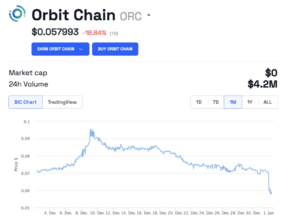
- As the crypto industry grows and matures, creating a legal framework that can balance innovation with consumer protection and financial stability is necessary.
- The challenges regulators face include determining how to classify cryptocurrencies under existing legal frameworks, ensuring Anti-Money Laundering AML and Know-Your-Customer KYC compliance, and addressing concerns over investor protection and market stability.
- It is important for stakeholders, including regulators, industry participants, and investors, to work together to shape the regulatory landscape.
Cryptocurrencies and blockchain technology have emerged as a major disruptor in the global financial system. The decentralized and distributed nature of these technologies has the potential to revolutionize traditional financial systems, but they also pose unique challenges in terms of regulation. As the crypto industry grows and matures, creating a legal framework that can balance innovation with consumer protection and financial stability is necessary.
Crypto Regulation: The Current State of Affairs
The regulatory landscape for cryptocurrencies and blockchain technology varies widely around the world. Some countries have taken a proactive approach to regulating the crypto industry, while others have banned cryptocurrencies altogether. The challenges regulators face include determining how to classify cryptocurrencies under existing legal frameworks, ensuring Anti-Money Laundering AML and Know-Your-Customer KYC compliance, and addressing concerns over investor protection and market stability.
In the United States, the regulatory environment for cryptocurrencies has been in a state of flux. The Securities and Exchange Commission (SEC) has been grappling with classifying cryptocurrencies and tokens under securities laws, while the Commodity Futures Trading Commission (CFTC) has taken a more permissive approach. Similarly, the Internal Revenue Service (IRS) has struggled to determine how to tax cryptocurrencies, leading to confusion and uncertainty for investors.
In Europe, countries such as Malta and Estonia have been at the forefront of embracing cryptocurrencies and blockchain technology. Malta has established itself as a hub for crypto exchanges and has passed several pieces of legislation to provide clarity and regulatory certainty for the industry. Estonia has also been proactive in promoting the adoption of blockchain technology and has launched several initiatives to encourage innovation in the sector.
China has taken a hardline approach to cryptocurrencies in Asia, banning ICOs and cryptocurrency exchanges. On the other hand, Japan has embraced cryptocurrencies and passed a law regulating cryptocurrency exchanges. South Korea has also taken steps to regulate cryptocurrencies, although it has been more cautious in its approach.
In Africa, the reception has been mixed. North African countries moved to ban cryptocurrency after Morrocco kicked off the trend. The majority of African countries placed a ban on cryptocurrency trading. Most are implicit bans, while some countries have gone to the extreme and outright banned it. However, it’s not all bad news. The Central African Republic became the first to accept Bitcoin as legal tender. Dél-Afrika a pénzügyi eszközökről szóló törvénye szerint szabályozta a kriptovalutákat. This also covers crypto asset service providers such as exchanges and wallets. Namibia lifted its crypto ban allowing willing parties to settle transactions in cryptocurrency. Kenya moved to bring cryptocurrency into the fold by taxing cryptocurrency gains. Nigeria launched Africa’s first Central Bank Digital Currency (CBDC).
Kihívások a kriptográfiai szabályozásban
A kriptovaluták szabályozása több okból is kihívást jelenthet:
Decentralizálás
A kriptovaluták decentralizált hálózatokon működnek, mint például a blokklánc technológia. Ez azt jelenti, hogy nincs központi hatóság vagy irányító testület, amely ellenőrizné vagy felügyelné a kriptovaluta-tranzakciókat. Ez a decentralizált jelleg megnehezíti a hagyományos szabályozási keretek hatékony alkalmazását.
A joghatóság hiánya
A kriptovalutákat nem kötik földrajzi határok, így egyetlen kormány vagy szabályozó testület számára is kihívást jelent a szabályok egyetemes betartatása. A kriptovaluta-tranzakciók több országban is előfordulhatnak, és gyakran nem világos, hogy melyik joghatóságnak kell felelősséget vállalnia a szabályozásért.
Anonimitás és álnév
A kriptovaluták bizonyos szintű adatvédelmet és anonimitást biztosítanak a felhasználók számára. Bár ezt a funkciót gyakran előnyösnek tekintik, kihívásokat is jelent a szabályozók számára, mivel elősegítheti a tiltott tevékenységeket, például a pénzmosást, az adóelkerülést és az illegális tevékenységek finanszírozását. A magánélet és a szabályozás szükségessége közötti egyensúly megteremtése összetett feladat.
Gyorsan fejlődő technológia
A kriptoipar folyamatosan fejlődik, rendszeresen jelennek meg új kriptovaluták, tokenek és technológiák. A szabályozó hatóságok gyakran küzdenek azért, hogy lépést tartsanak ezekkel a fejleményekkel, és megértsék az egyes kriptovaluták bonyolultságát, az alaptechnológiát, valamint a pénzügyi piacokra és a fogyasztóvédelemre gyakorolt lehetséges hatásait.
Globális koordináció
Mivel a kriptovaluták nem korlátozódnak egyetlen joghatóságra, a hatékony szabályozás nemzetközi együttműködést és koordinációt igényel az országok között. A szabályozási szabványokkal és végrehajtási mechanizmusokkal kapcsolatos konszenzus elérése kihívást jelenthet a különböző nemzetek eltérő szabályozási megközelítései és prioritásai miatt.
Az innováció és a befektetővédelem egyensúlya
A szabályozóknak egyensúlyt kell teremteniük a kriptovaluták innovációjának előmozdítása és a befektetők potenciális kockázatokkal szembeni védelme között. A túl szigorú szabályozás elfojthatja az innovációt, míg a laza szabályozás csalásnak, piaci manipulációnak és pénzügyi veszteségeknek teszi ki a befektetőket.
Opportunities in Crypto Regulation
Despite the challenges, several opportunities exist in regulating cryptocurrencies and blockchain technology. Regulations can provide market participants clarity and certainty, leading to increased adoption and investment. Moreover, regulations can provide a framework for innovation in the industry, which can drive economic growth and job creation.
Regulations can also protect investors and consumers from fraudulent activities in the industry. The lack of transparency and oversight in some areas of the crypto industry has led to fraud and scams. Regulations can protect investors and consumers, increasing industry trust and promoting long-term sustainability.
Furthermore, regulations can enhance transparency and accountability in the industry. Regulations can increase trust and confidence in the industry by requiring greater transparency in transactions and providing oversight for exchanges and other market participants. This can lead to greater adoption and investment and increased legitimacy for cryptocurrencies and blockchain technology.
There is also something to say about the prospects of regulating cryptocurrency for African governments. It has become a popular campaigning point for presidential candidates to mention taxing crypto as part of the digital economy. Regulating crypto also creates the opportunity to tax it appropriately. The potential benefits of such a move are astronomical. Revenue realised from taxing cryptocurrency and other digital activity could be well used to develop infrastructure further.
Crypto regulation the way forward
Összefoglalva, a kriptovaluták és a blokklánc technológia jogi kereteinek megteremtése kihívásokat és lehetőségeket rejt magában. Noha e technológiák egyedi jellege szabályozási kihívásokat vet fel, az innováció, a növekedés és a fogyasztóvédelem terén is vannak lehetőségek. Az ipar hosszú távú fenntarthatósága és sikere szempontjából kulcsfontosságú lesz egy olyan szabályozási keret kialakítása, amely egyensúlyban tartja ezeket a versengő érdekeket.
Fontos, hogy az érdekelt felek, köztük a szabályozók, az iparági szereplők és a befektetők együttműködjenek a szabályozási környezet alakításában. Az együttműködés segíthet abban, hogy a szabályozások hatékonyak, eredményesek és megfeleljenek az iparág egyedi jellemzőinek.
A kriptoszabályozás jövője valószínűleg jelentős hatással lesz a világgazdaságra. Ahogy a kriptovaluták és a blokklánc technológia egyre nagyobb teret hódít, a szabályozókra egyre nagyobb nyomás nehezedik, hogy egyértelműséget és útmutatást adjanak a piaci szereplőknek. Proaktív megközelítéssel és együttműködő munkával a szabályozók hozzájárulhatnak ahhoz, hogy az iparág továbbra is növekedjen és megújuljon, miközben biztosítják a fogyasztóvédelmet és a pénzügyi stabilitást.
- SEO által támogatott tartalom és PR terjesztés. Erősödjön még ma.
- PlatoAiStream. Web3 adatintelligencia. Felerősített tudás. Hozzáférés itt.
- A jövő pénzverése – Adryenn Ashley. Hozzáférés itt.
- Részvények vásárlása és eladása PRE-IPO társaságokban a PREIPO® segítségével. Hozzáférés itt.
- Forrás: https://web3africa.news/2023/05/20/news/the-increasing-need-for-crypto-regulation/
- :van
- :is
- :nem
- a
- Rólunk
- Elfogad!
- felelősségre vonhatóság
- elérése
- át
- tevékenységek
- tevékenység
- címzés
- Örökbefogadás
- Afrika
- afrikai
- Után
- Minden termék
- lehetővé téve
- Is
- Bár
- teljesen
- AML
- között
- és a
- névtelenség
- pénzmosás elleni
- bármilyen
- alkalmaz
- megközelítés
- megközelít
- megfelelő
- megfelelő
- VANNAK
- területek
- körül
- AS
- Ázsia
- vagyontárgy
- Eszközök
- At
- hatóság
- Rossz
- Egyenleg
- egyenlegek
- Tilalom
- Bank
- betiltották
- bans
- BE
- lett
- válik
- óta
- előnyös
- Előnyök
- Bitcoin
- blockchain
- Blockchain technológia
- test
- Köteles
- határait
- hoz
- de
- by
- kampány
- TUD
- jelöltek
- óvatos
- CBDCA
- központi
- Közép-Afrikai Köztársaság
- központi hatóság
- Központi Bank
- központi bank digitális valuta
- központi bank digitális valuta (CBDC)
- bizonyos
- bizonyosság
- CFTC
- kihívások
- kihívást
- jellemzők
- világosság
- osztályoz
- együttműködés
- jutalék
- árucikk
- versengő
- bonyolult
- teljesítés
- aggodalmak
- következtetés
- bizalom
- zavar
- megegyezés
- állandóan
- fogyasztó
- Fogyasztóvédelem
- Fogyasztók
- folytatódik
- tovább
- ellenőrzések
- együttműködés
- összehangolás
- tudott
- országok
- Covers
- teremt
- létrehozása
- teremtés
- kritikus
- crypto
- rejtjelező eszköz
- titkosítási tilalom
- Kriptocsere
- Kriptoipar
- Crypto szabályozás
- cryptocurrencies
- cryptocurrency
- Cryptocurrency csere
- cryptocurrency kereskedés
- Valuta
- Jelenlegi
- Jelenlegi állapot
- decentralizált
- decentralizált hálózatok
- Határozzuk meg
- meghatározó
- Fejleszt
- fejlesztése
- fejlesztések
- különböző
- nehéz
- digitális
- digitális pénznem
- Digitális gazdaság
- megosztott
- hajtás
- két
- minden
- Gazdasági
- Gazdasági növekedés
- gazdaság
- Hatékony
- hatékonyan
- hatékony
- felkarolta
- átkarolás
- alakult
- csiszolókő
- ösztönzése
- érvényesíteni
- végrehajtás
- növelése
- biztosítására
- biztosítása
- Környezet
- megalapozott
- Észtország
- Európa
- fejlődik
- fejlődik
- csere
- Feltételek
- létezik
- létező
- szélső
- Arc
- megkönnyítése
- Funkció
- pénzügyi
- pénzügyi stabilitás
- pénzügyi rendszer
- pénzügyi rendszerek
- finanszírozás
- vezetéknév
- FÉNYÁRAM
- A
- A befektetők számára
- Forefront
- elősegítése
- Keretrendszer
- keretek
- csalás
- csaló
- ból ből
- további
- jövő
- Futures
- Futures kereskedelem
- Nyereség
- Nyereség
- földrajzi
- Globális
- Világgazdaság
- globális pénzügyi
- globális pénzügyi rendszer
- irányító
- Kormány
- A kormányok
- nagyobb
- Nő
- növekszik
- Növekedés
- útmutatást
- kéz
- Legyen
- segít
- Hogyan
- How To
- azonban
- HTTPS
- Kerékagy
- nemzetközi áruszervezeteknek
- Illegális
- tiltott
- Hatás
- következményei
- fontos
- in
- tartalmaz
- Beleértve
- Növelje
- <p></p>
- növekvő
- ipar
- az iparé
- Infrastruktúra
- kezdeményezések
- újít
- Innováció
- érdekek
- belső
- Internal Revenue Service
- Nemzetközi
- bele
- bonyodalmak
- beruházás
- Investopedia
- befektető
- befektetők védelme
- Befektetők
- IRS
- IT
- ITS
- maga
- Japán
- Munka
- jpg
- igazságszolgáltatás
- Tart
- Kenya
- korea
- KYC
- KYC-megfelelés
- hiány
- táj
- indított
- tisztára mosása
- Törvény
- törvények
- vezet
- vezető
- Led
- Jogi
- jogi keretrendszer
- TÖRVÉNYES FIZETŐESZKÖZ
- Jogalkotás
- törvényesség
- szint
- felemelte
- Valószínű
- hosszú lejáratú
- veszteség
- fontos
- Többség
- KÉSZÍT
- Gyártás
- Málta
- Manipuláció
- piacára
- piacbefolyásolás
- piacok
- megérik
- eszközök
- mechanizmusok
- vegyes
- pénz
- Pénzmosás
- több
- Ráadásul
- a legtöbb
- mozog
- többszörös
- kell
- Nemzetek
- Természet
- elengedhetetlen
- Szükség
- hálózatok
- Új
- hír
- Nigéria
- nem
- Északi
- of
- kedvezmény
- gyakran
- on
- működik
- Lehetőségek
- Alkalom
- or
- Más
- Egyéb
- felett
- Felügyelet
- Béke
- rész
- résztvevők
- fél
- Elmúlt
- darabok
- Plató
- Platón adatintelligencia
- PlatoData
- pont
- Népszerű
- pózok
- potenciális
- ajándékot
- elnöki
- nyomás
- magánélet
- proaktív
- támogatása
- kilátások
- védelme
- védje a befektetőket
- védelme
- védelem
- ad
- szolgáltatók
- amely
- miatt
- fogadás
- rendszeresen
- Szabályoz
- szabályozott
- Szabályozás
- előírások
- Szabályozók
- szabályozók
- szabályozási táj
- Köztársaság
- megköveteli,
- felelősség
- jövedelem
- forradalmasítani
- kockázatok
- azt mondják
- csalások
- SEC
- szektor
- Értékpapír
- Értékpapír- és Tőzsdebizottság
- Értékpapírtörvények
- látott
- szolgáltatás
- szolgáltatók
- rendezni
- számos
- Alak
- kellene
- jelentős
- Hasonlóképpen
- egyetlen
- néhány
- valami
- Dél
- Dél-Korea
- Stabilitás
- érdekeltek
- szabványok
- Állami
- Államok
- Lépései
- Küzdelem
- siker
- ilyen
- Fenntarthatóság
- rendszer
- Systems
- Vesz
- meghozott
- bevétel
- Feladat
- adó
- Adócsalás
- Technologies
- Technológia
- Tender
- feltételek
- hogy
- A
- a világ
- Ott.
- Ezek
- ők
- ezt
- nak nek
- együtt
- tokenek
- vontatás
- Kereskedés
- hagyományos
- Tranzakciók
- Átláthatóság
- tendencia
- Bízzon
- Bizonytalanság
- alatt
- mögöttes
- megért
- egyedi
- Egyesült
- Egyesült Államok
- használt
- Felhasználók
- Pénztárcák
- Út..
- JÓL
- ami
- míg
- széles körben
- lesz
- hajlandó
- val vel
- Munka
- együtt dolgozni
- dolgozó
- világ
- zephyrnet












